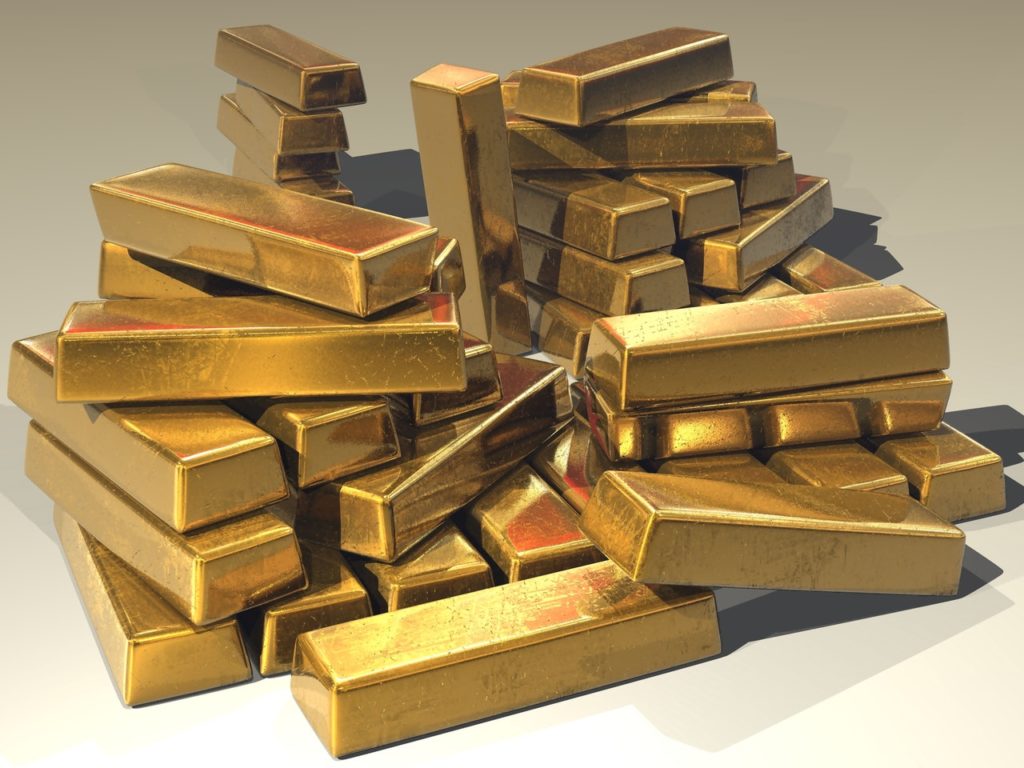Global gold demand grew to 1,053.3t in the first quarter of 2019, up 7% on the same period last year, according to the World Gold Council’s latest Gold Demand Trends report. This year-on-year increase was largely due to continued growth in central bank buying, as well as growth in gold-backed exchange-traded funds (ETFs).
Central banks bought 145.5t of gold in Q1, up 68% on the same period in 2018 and representing the strongest start to a year since 2013. Diversification and a desire for safe, liquid assets were again the main drivers of the purchases. On a rolling four-quarter basis, gold buying reached a record high for our series of 715.7t.
Q1 jewellery demand rose 1% compared with the same period last year, at 530.3t, boosted by India. A lower local rupee gold price in late February and early March coincided with the traditional gold buying wedding season, lifting jewellery demand in India to 125.4t, a 5% increase on the same period last year and the highest Q1 since 2015.
ETFs and similar products added 40.3t in Q1, up 49% on last year. Funds listed in the US and Europe benefitted from the largest inflows, although the former were more erratic while the latter were underpinned by continued geopolitical instability.
Bar and coin investment softened slightly, down 1% to 257.8t. This was purely due to a fall in demand for gold bars, as official gold coin buying grew 12% to 56.1t. China and Japan were the main contributors to the decline: in Japan, net investment turned negative on profit-taking following a surge in the local price in February.
Gold used in applications such as electronics, wireless and LED lighting fell 3% to 79.3t. Trade frictions, sluggish sales of consumer electronics and global economic headwinds hit the technology sector.
Alistair Hewitt, Head of Market Intelligence at the World Gold Council, commented:
“The beginning of 2019 saw a sharp recovery in investor sentiment in both the equity and debt markets, but appetite for gold remained solid. In Q1, central banks continued to increase their holdings of gold, while ETFs also saw an increase in inflows compared with the first quarter of 2018. European investment in ETFs hit a record high and this quarter’s figures suggest that the factors that are driving the investment – negative yields on Eurozone sovereign debt, geopolitical uncertainty and financial market volatility – will continue to underpin investment demand. In addition, central banks on both sides of the Atlantic putting monetary policy tightening on hold – and potentially easing – is likely to be supportive of gold.”
The total supply of gold was largely unchanged in Q1 at 1,150t. Modest growth in mine production and recycling was offset by a decline in net hedging. Mine production and recycling levels saw small increases compared with Q1 2018, rising to 852.4t and 287.6t respectively.
The key findings included in the Gold Demand Trends Q1 2019 report are as follows:
– Overall demand was 1,053.3t, an increase of 7% compared with 984.2t in Q1 2018
– Total consumer demand was flat at 788.1t, compared with 788.6t in the same period last year
– Total investment demand was up 3% to 298.1t, compared with 288.4t in Q1 2018
– Global jewellery demand grew 1% to 530.3t, up from 527.3t in the same period in 2018
– Central bank demand increased by 68% to 145.5t compared with 86.7t in Q1 2018
– Demand in the technology sector decreased by 3% to 79.3t, compared with 81.8t in Q1 2018
– Total supply was virtually unchanged at 1,150t, down slightly from 1,153.1t in the same period last year
– Recycling was up 5% at 287.6t, compared with 274.6t in Q1 2018
The Gold Demand Trends Q1 2019 report, which includes comprehensive data provided by Metals Focus, can be viewed at http://www.gold.org/research/
Gold Demand Trends data can also be explored using our interactive charting tool http://www.gold.org/data/gold-
You can follow the World Gold Council on Twitter at @goldcouncil [https://twitter.com/
World Gold Council
The World Gold Council is the market development organisation for the gold industry. Our purpose is to stimulate and sustain demand for gold, provide industry leadership and be the global authority on the gold market.
We develop gold-backed solutions, services and products, based on authoritative market insight and we work with a range of partners to put our ideas into action. As a result, we create structural shifts in demand for gold across key market sectors. We provide insights into the international gold markets, helping people to understand the wealth preservation qualities of gold and its role in meeting the social and environmental needs of society.
The membership of the World Gold Council includes the world’s leading and most forward-thinking gold mining companies.
SOURCE: World Gold Council

